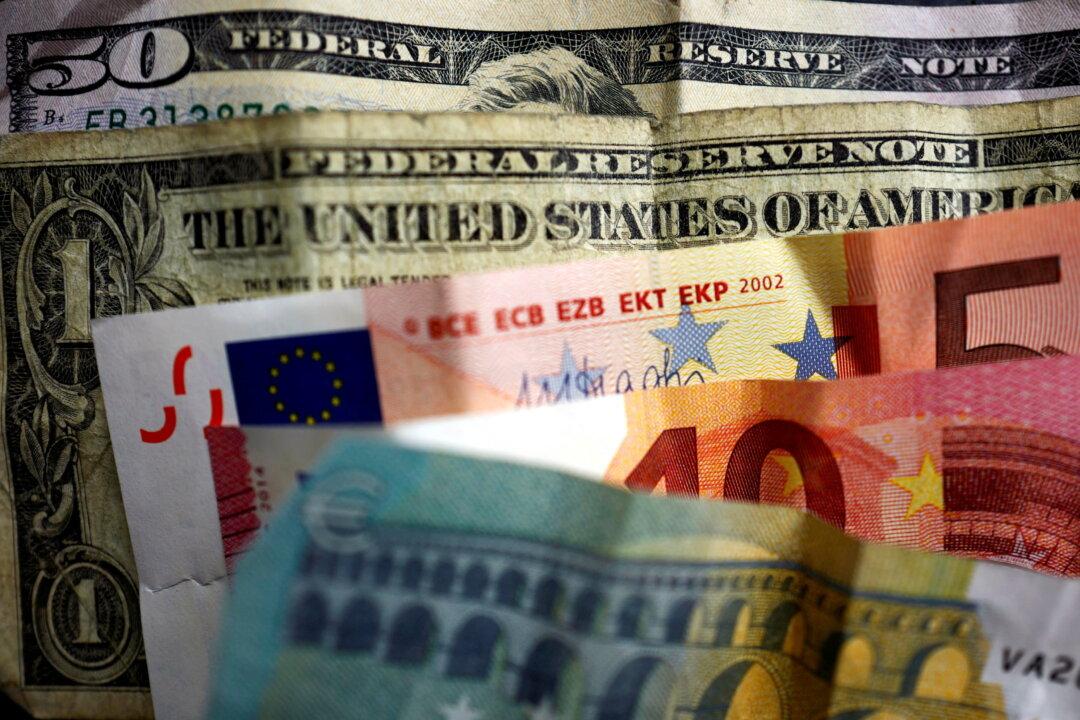LONDON—The euro edged lower on Monday after Germany and France said a new round of sanctions targeting Russia were needed amid war crimes allegations in Ukraine.
The euro, which has been under pressure due to worries about the economic damage from the war in Ukraine, slipped 0.15 percent versus the dollar to park at $1.1031 at 0755 GMT, not too far from last month’s almost two-year trough of $1.0806. Against sterling, it fell 0.24 percent to 84.05 pence, near a six-day low.





